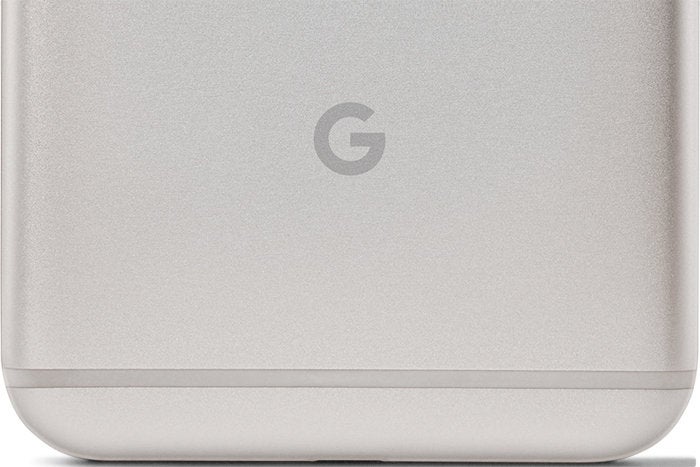Sometimes, big news can take a while to process.
I've been spending the past several days thinking about last week's revelation that, yes, Google is buying a piece of HTC. The announcement wasn't quite the bombshell lots of folks were expecting – y'know, the "HOLY HELL, GOOGLE ABSORBED ANOTHER ENTIRE PHONE-MAKER!" variety – but it's still pretty darn significant.
Google, as you no doubt know by now, paid a whopping $1.1 billion to bring a bunch of HTC's smartphone brainiacs into its employ. Most of those people were apparently already working with Google on the company's Pixel products. So in other words, Google hired its own dedicated team of former contractors to help create its future devices.
I probably don't have to spell out how that supports the signs of grand ambition we saw at the start of Google's Pixel journey. "If you're looking at Google's Pixel as 'Just Another Android Phone,'" I wrote last fall, "you're missing what really matters." You know what I'm getting at, right?
The Pixel program picked up where the short-lived Motorola ownership experiment left off, but with one key difference: This time, Google is creating and controlling devices completely on its own terms – and without any pre-existing parameters or limitations. This time, the phone-making organization is very much a part of Google itself and not a sprawling separate company with its own baggage. And this time, as I wrote almost exactly one year ago, the stakes are especially high:
With the way Google's projects and priorities are evolving, Android by itself ... is no longer guaranteed to address all of the company's future-looking goals. And Google is no longer willing to sit back and watch helplessly as others manipulate and distort its broader vision.
So that brings us back to today. Spending a cool billion on some of HTC's smartphone-making assets obviously gives Google more gas to create and fully develop its own hardware products. From a business perspective, we know why Google wants that. What we don't know – and what I'm not yet entirely convinced of – is how much difference that extra fuel will make.
Think about it: Nitpicks aside, Google's Pixel phone has basically been a critical success from the start. Even a year after its debut, the phone has remained a standard of comparison to which all other Android devices are held – and generally not to their benefit. That's mostly due to the Pixel's prowess in areas where other Android device-makers can't (or won't) compete.
Significant as that is, though, ask an average non-tech-obsessed smartphone user what they think about the Pixel – and all you're likely to get in response is a glossy-eyed stare. Google may be positioning the Pixel as a mainstream device and even marketing it as such, to a degree, but it hasn't yet managed to break through that Samsung-scented wall and make its phone impactful in any broad and practical sense.
That's a critical challenge – and one all the engineering talent in the world can't help overcome. We've seen countless incredible phones come and go almost unnoticed in the realm of Android, particularly here in America. Their quality is but a tiny piece of the overall puzzle and almost becomes irrelevant. Without ubiquitous availability and an effective marketing message, hardly anyone sees, thinks about, or buys the damn things – and they drown in obscurity without ever making a meaningful splash.
The first-gen Pixel was confusingly touted as a "Verizon exclusive" in the U.S., which meant no other carrier would sell it in its stores or online. Sure, you could buy the phone directly from Google and use it on practically any network, but that doesn't mean much in a big-picture sense (nor is it something most people would realize without taking the time to research the subject). Silly as it may seem to those of us in the know, the vast majority of folks in the States – nearly 88% of all smartphone shoppers, according to a late-summer analysis by The NPD Group – still buy their phones from carriers.
The resulting reality is simple: If you want your device to matter to the masses, you've gotta get it on those store shelves – all of 'em, not just a single carrier's. You've gotta make sure people see the device and can readily purchase it everywhere, and you've gotta make sure they know why it's better than the more familiarly branded alternatives.
I don't know that it's fair to expect Google to achieve anything on that scale with its first attempt at a holistic and mainstream-ready phone. And I don't know that Google itself intended or expected to achieve anything close to that level right out of the gate, either. All signs suggest the company had more modest goals with these early go-rounds – and that the inevitable full push into competing-for-major-market-share status has yet to begin.
What remains to be seen is if that's a challenge Google will eventually be able to master – and if so, how long it'll take for that moment to arrive. We already knew Google could create a fantastic Android phone. Having some of HTC's finest minds in-house will undoubtedly make those efforts more efficient, but it's the next step that'll provide the most pivotal and uncertain test of all.







